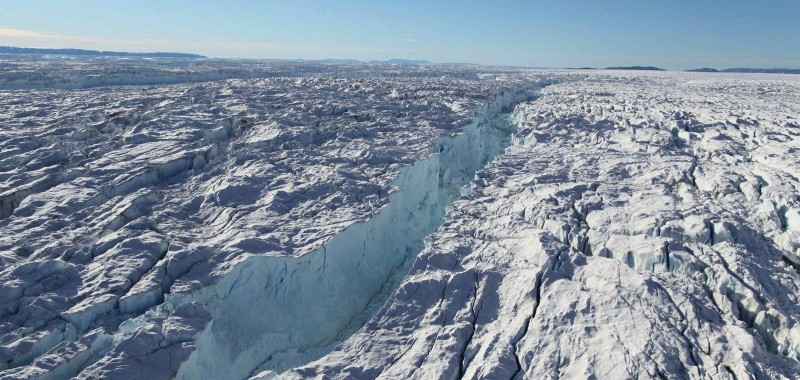Jan 19, 2018–Jan 19, 2018 from 4:00pm–6:00pm
17th Annual James R. Arnold Lecture

- Speaker Biography: Eric Rignot is the Donald Bren Professor of Earth System Science at the University of California Irvine and a Senior Research Scientist at the Jet Propulsion Laboratory. He is a leader in the study of the interactions and changes by the Antarctic and Greenland Ice Sheets and their contributions to climate and sea level rise. His research uses a wide range of technology including remote sensing and radar interferometry as well as modeling. His work is used in studying the interactions of ice shelves and the oceans, retreat of South American glaciers, and addresses major questions in climate change, sea level rise, radar remote sensing, and ice-oceans interaction. His work is vital and used in climate change policy and predicting glacier contributions to sea level change. He is the recipient of numerous awards and recognition from NASA, NSF and for his work on the Fourth and Fifth International IPCC Report.
- Abstract: Sea level rose 20 cm in the 20th century and will rise 5-6 times more in the 21st century, with most of the rise taking place in the second half of the century. The largest uncertainty in the projection of sea level is the evolution of glaciers that control the ice sheet periphery. I will review what we know about the principal physical processes that control the evolution of these glaciers, with a focus on marine instability, sea level rise potential, and ice-ocean interactions, and the challenges that we face in reproducing their evolution in high-resolution, atmosphere/sea-ice/ocean/ice coupled numerical models. I will also review the last 40 years of modern observations in Antarctica combining old and new, airborne and spaceborne, and 40 years for Greenland and how these data give us new insights about the recent evolution and response to climate forcing. I will discuss how these changes are related to human induced disturbances of the Earth system, with major differences between North and South, what this entails in terms of sea level rise for the coming decade, the next century, and beyond, and what we can do about it.
- About the James R. Arnold Lectureship: The James R. Arnold Lectureship was established to honor the legacy of Professor James R. Arnold, one of UC San Diego’s first faculty members and founding chair of the Department of Chemistry & Biochemistry. Dr. James R. Arnold held the Harold C. Urey Chair in Chemistry at the University of California, San Diego (UC San Diego) until his passing in January 2012. In his early days, Jim received degrees in Chemistry from Princeton University and as a graduate student worked on the Manhattan (atomic bomb) Project. Jim began his career at the University of Chicago working under Prof. Willard Libby in the development of Carbon-14 dating. He was brought to UC San Diego by Dr. Roger Revelle in 1958 as one of the first faculty members for the then new UC San Diego campus and became the founding chairman of the UC San Diego Department of Chemistry. His research over the last several decades has mainly been in the area of space and planetary science, including participation in NASA’s Apollo missions to the moon and studies of lunar samples returned by those missions. He was the first director of the University of California Space Institute, first principal investigator of the California Space Grant Consortium, and a member of the U.S. National Academy of Sciences and the American Academy of Arts and Sciences. Jim has received a number of medals and awards, including an asteroid in his namesake: Asteroid 2143 “Jimarnold.” His participation in the Apollo program of manned exploration of the moon led him along with Gerald O’Neill, Freeman Dyson, and other space scientists, to think about the future of human exploration and settlement of the moon, Mars, and other solar system objects. In 1979 he published a paper calling attention to the possible existence of substantial deposits of ice in the lunar polar regions. His current interests were mainly in the area of increasing access to the space frontier, by lowering costs while maintaining or improving reliability. The link between this goal and the education of a new generation of space leaders is very close.
Date and Time
Jan 19, 2018–Jan 19, 2018
from 4:00pm–6:00pm
Location
Natural Sciences Building Auditorium (1205)
Event Registration
Registration is not required for this event.
Event Fee
Free
Contact
Mark Thiemens • mthiemens@ucsd.edu • 858-534-6882
Audience
Faculty, Staff, Students, The General Public
Event Host
Professor Mark H. Thiemens (Department of Chemistry and Biochemistry)